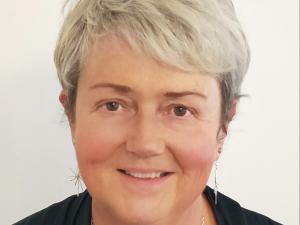Respiratory physician Lutz Beckert considers chronic obstructive pulmonary disease management, including the prevention of COPD, the importance of smoking cessation and pulmonary rehabilitation, and the lifesaving potential of addressing treatable traits. He also discusses the logic of inhaler therapy, moving from single therapy to dual and triple therapy when indicated, as well as other aspects of management
Budget 2021: Celebrated for small gains for women’s health, but faulted for lacking ‘big picture’
Budget 2021: Celebrated for small gains for women’s health, but faulted for lacking ‘big picture’

We're republishing this article in our Undoctored free access space so it can be read and shared more widely. Please think about supporting us and our journalism – subscribe here
“We might not be able to achieve everything we want to, but the recognition is good”
Budget 2021 provides for a few small gains in women’s health but lacks a big-picture view, says the group campaigning for a strategic approach to healthcare for women.
“We were disappointed to see no gender lens applied to the Budget,” says Gender Justice Collective founding member Erin Jackson.
“We know women were among those so impacted by COVID-19, and [finance minister] Grant Robertson talked about this, but this wasn’t reflected in the spending.”
However, the Budget’s large funding boost for Family Planning, and changes to cervical and breast cancer screening, have been welcomed. Family Planning is to receive an extra $3.764 million over the next four years, and $53 million is allocated for a new testing system for cervical cancer.
A further $55.6 million is to cover an upgrade of the technology used for breast screening and $10 million is to match population growth and catch up on screens missed due to COVID-19.
READ MORE:
- Budget 2021 sets nearly $500 million aside for health reforms
- Petition launched for a $6 million women’s health strategy
- Primary Voices podcast: Talking contraception with GP Orna McGinn
- Funding boost only a short-term fix to long-term problems for Family Planning
- Midwives pleased with millions for maternity services, but 'devil still in the detail'
Family Planning chief executive Jackie Edmond says she and staff are pleased the organisation is to receive additional funding.
“We need to know more about what it’s for,” Ms Edmond says. “But it will make a difference for us, especially in helping meet general cost increases, as we’ve had no increase in funding in 10 years.”
She hopes the money will allow the organisation to take on more staff, particularly in areas of high need, reduce long appointment wait times, and put some towards pay parity.
“We might not be able to achieve everything we want to, but the recognition is good.
“It’s a good day for us and the people we see.”
Last year the organisation received a one-off funding boost of $427,000 to help with the large patient backlog created by the COVID-19 pandemic.
New Zealand College of Midwives chief executive Alison Eddy says a small increase of $17.2 million for primary maternity services, to cover cost pressures, “doesn’t go quite where it needs to for achieving fair and reasonable pay”.
“It’s just a 1.5 per cent cost-pressure increase, it’s nothing magic,” Ms Eddy says.
The $17.2 million will cover payments for maternity care, excluding radiology and specialist services. The funding is distributed in terms of the Section 88 Primary Maternity Service Notice, under which lead maternity carers and other healthcare professionals claim.
The notice is under consultation, and is expected to be replaced shortly: “So this money will be redistributed across the new notice, but we don’t know what that will look like.
“We’ve had no clarification over the new notice or been able to negotiate with the Ministry [of Health].”
A long period of no increases led the college in 2015 to take the Government to court over equal pay.
Last year, the Government announced a $242 million maternity package, which aimed to deal with many of the issues facing midwives, including working rurally and dealing with complex births.
Meanwhile, Ms Jackson says any mention of a national women’s health strategy was conspicuously absent from last week’s Budget.
The collective last month presented MPs with a petition, signed by 2,873 people and backed by academics and the Royal Australian and New Zealand College of Obstetricians and Gynaecologists.
The petition called for the Government to set aside $6 million to overhaul women’s health services and towards implementing a National Women’s Health Strategy.
To see this in the Budget would have been “a big ask”, says Ms Jackson.
The petition is going before the health select committee, and Ms Jackson says it has received indications of support.
She says funding increases for services such as Family Planning, and for the changes to cervical and breast cancer screening, are welcome.
But she warns against looking at women’s health as “single issues”, and encourages a more holistic gender response.
“There’s been some good steps forward, so I’m optimistic. The trick is not to pit women’s issues against each other.”










![Barbara Fountain, editor of New Zealand Doctor Rata Aotearoa, and Paul Hutchison, GP and senior medical clinician at Tāmaki Health [Image: Simon Maude]](/sites/default/files/styles/thumbnail_cropped_100/public/2025-03/Barbara%20Fountain%2C%20editor%20of%20New%20Zealand%20Doctor%20Rata%20Aotearoa%2C%20and%20Paul%20Hutchison%2C%20GP%20and%20senior%20medical%20clinician%20at%20T%C4%81maki%20Health%20CR%20Simon%20Maude.jpg?itok=-HbQ1EYA)
![Lori Peters, NP and advanced health improvement practitioner at Mahitahi Hauora, and Jasper Nacilla, NP at The Terrace Medical Centre in Wellington [Image: Simon Maude]](/sites/default/files/styles/thumbnail_cropped_100/public/2025-03/2.%20Lori%20Peters%2C%20NP%20and%20advanced%20HIP%20at%20Mahitahi%20Hauora%2C%20and%20Jasper%20Nacilla%2C%20NP%20at%20The%20Terrace%20Medical%20Centre%20in%20Wellington%20CR%20Simon%20Maude.jpg?itok=sUfbsSF1)
![Ministry of Social Development health and disability coordinator Liz Williams, regional health advisors Mary Mojel and Larah Takarangi, and health and disability coordinators Rebecca Staunton and Myint Than Htut [Image: Simon Maude]](/sites/default/files/styles/thumbnail_cropped_100/public/2025-03/3.%20Ministry%20of%20Social%20Development%27s%20Liz%20Williams%2C%20Mary%20Mojel%2C%20Larah%20Takarangi%2C%20Rebecca%20Staunton%20and%20Myint%20Than%20Htut%20CR%20Simon%20Maude.jpg?itok=9ceOujzC)
![Locum GP Helen Fisher, with Te Kuiti Medical Centre NP Bridget Woodney [Image: Simon Maude]](/sites/default/files/styles/thumbnail_cropped_100/public/2025-03/4.%20Locum%20GP%20Helen%20Fisher%2C%20with%20Te%20Kuiti%20Medical%20Centre%20NP%20Bridget%20Woodney%20CR%20Simon%20Maude.jpg?itok=TJeODetm)
![Ruby Faulkner, GPEP2, with David Small, GPEP3 from The Doctors Greenmeadows in Napier [Image: Simon Maude]](/sites/default/files/styles/thumbnail_cropped_100/public/2025-03/5.%20Ruby%20Faulkner%2C%20GPEP2%2C%20with%20David%20Small%2C%20GPEP3%20from%20The%20Doctors%20Greenmeadows%20in%20Napier%20CR%20Simon%20Maude.jpg?itok=B0u4wsIs)
![Rochelle Langton and Libby Thomas, marketing advisors at the Medical Protection Society [Image: Simon Maude]](/sites/default/files/styles/thumbnail_cropped_100/public/2025-03/6.%20Rochelle%20Langton%20and%20Libby%20Thomas%2C%20marketing%20advisors%20at%20the%20Medical%20Protection%20Society%20CR%20Simon%20Maude.jpg?itok=r52_Cf74)
![Specialist GP Lucy Gibberd, medical advisor at MPS, and Zara Bolam, urgent-care specialist at The Nest Health Centre in Inglewood [Image: Simon Maude]](/sites/default/files/styles/thumbnail_cropped_100/public/2025-03/7.%20Specialist%20GP%20Lucy%20Gibberd%2C%20medical%20advisor%20at%20MPS%2C%20and%20Zara%20Bolam%2C%20urgent-care%20specialist%20at%20The%20Nest%20Health%20Centre%20in%20Inglewood%20CR%20Simon%20Maude.jpg?itok=z8eVoBU3)
![Olivia Blackmore and Trudee Sharp, NPs at Gore Health Centre, and Gaylene Hastie, NP at Queenstown Medical Centre [Image: Simon Maude]](/sites/default/files/styles/thumbnail_cropped_100/public/2025-03/8.%20Olivia%20Blackmore%20and%20Trudee%20Sharp%2C%20NPs%20at%20Gore%20Health%20Centre%2C%20and%20Gaylene%20Hastie%2C%20NP%20at%20Queenstown%20Medical%20Centre%20CR%20Simon%20Maude.jpg?itok=Z6u9d0XH)
![Mary Toloa, specialist GP at Porirua and Union Community Health Service in Wellington, Mara Coler, clinical pharmacist at Tū Ora Compass Health, and Bhavna Mistry, specialist GP at Porirua and Union Community Health Service [Image: Simon Maude]](/sites/default/files/styles/thumbnail_cropped_100/public/2025-03/9.%20Mary%20Toloa%2C%20Porirua%20and%20Union%20Community%20Health%20Service%20in%20Wellington%2C%20Mara%20Coler%2C%20T%C5%AB%20Ora%20Compass%20Health%2C%20and%20Bhavna%20Mistry%2C%20PUCHS%20CR%20Simon%20Maude.jpg?itok=kpChr0cc)